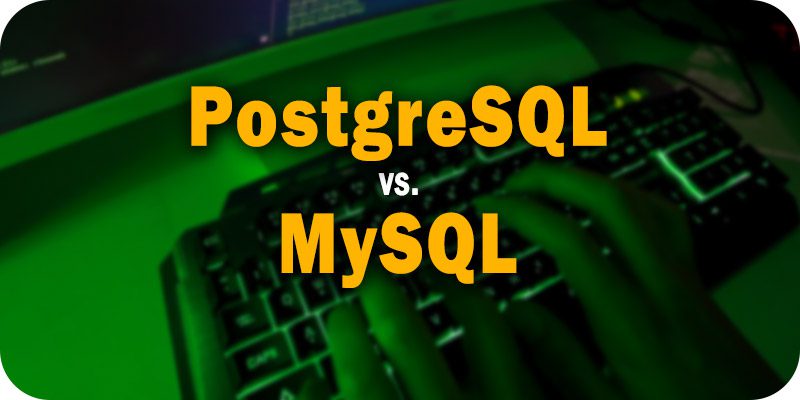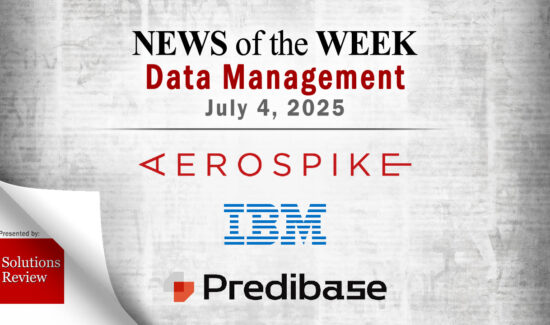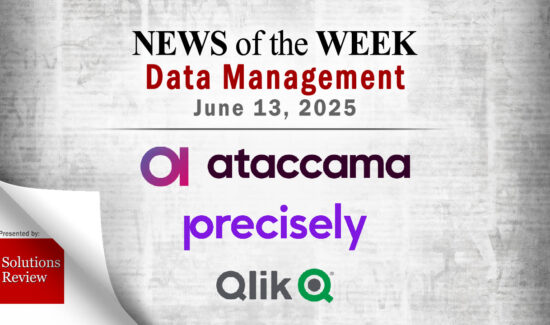PostgreSQL vs. MySQL: Four Key Reasons to Choose the Former


This is part of Solutions Review’s Premium Content Series, a collection of contributed columns written by industry experts in maturing software categories. In this submission, Instaclustr‘s VP & Global Head of Data Solutions Anil Inamdar offers a comparison between PostgreSQL vs. MySQL and reveals his evaluation criteria.
 If your organization is currently weighing the pros and cons of adopting PostgreSQL versus MySQL and looking for advice, I’m here to explain why in my mind there’s little debate. For those that need a proven enterprise-grade SQL database with every advanced capability out there—and one available as a true open-source solution at no cost to run—PostgreSQL offers an extremely compelling option.
If your organization is currently weighing the pros and cons of adopting PostgreSQL versus MySQL and looking for advice, I’m here to explain why in my mind there’s little debate. For those that need a proven enterprise-grade SQL database with every advanced capability out there—and one available as a true open-source solution at no cost to run—PostgreSQL offers an extremely compelling option.
Let’s get into some of the top reasons why PostgreSQL is my clear recommendation over MySQL:
PostgreSQL vs. MySQL
Development and Licensing
PostgreSQL releases a new major version every year. Apart from a few hiccups (I’m talking about you, reindex concurrently bug), Postgres has delivered new first-class enterprise features with each of its last few versions. From its continuous partitioning improvements to introducing index deduplication, PostgreSQL is consistently getting better with every release. The open-source community’s response to bugs is usually immediate: important bugs are fixed—with full transparency—in a matter of days at most.
Postgres is also a fully open-source project that’s been available under the PostgreSQL license since 1996. Its code quality is highly regarded: an achievement stemming from the project’s commitment to open and public code review processes. The project is unquestionably a testament to the capabilities of its broad and talented open-source community.
In contrast, MySQL has a, let’s call it more complex standing. While ostensibly “open-source,” MySQL has increasingly added commercial modules with proprietary licensing since its acquisition by Oracle in 2010. And while “MySQL Community Edition” is still supported by a large community of open-source developers, MySQL development has certainly felt the impact of Oracle’s influence.
The past year has seen a lot of activity with open-source projects changing their licensing, unfortunately leading to greater usage restrictions in most cases. Open core vendors that lure in customers with the promise of open-source flexibility while concealing vendor and technical lock-in continue to lie like traps within the solution landscape. Amid these challenges for organizations simply seeking safe open-source technologies to build and scale their products upon, Postgres stands out as a particularly mature project backed by a particularly strong community—and with diverse project leadership dedicated to true open-source principles.
Strong Community and Commercial Support
Because of Postgres’ public code review approach to development, the entire public history of the solution’s development and discussions, including thousands of volunteer committers and Postgres professionals, is available in mailing list archives (as well as platforms like Slack, IRC, Telegram, and others). It’s also quite easy for developers to ask questions and receive the right answers from the community. Organizations in need of more elaborate assistance can also easily find experienced providers offering professional PostgreSQL support.
MySQL’s Community Edition features a sizeable open-source community as well, and MySQL has available professional support. However, it’s all the more necessary to take care to avoid the lock-in perils of open core when navigating the MySQL ecosystem.
Overall Performance (and Flexibility)
Without diving into the gritty technical details of Postgres and MySQL, the two feature a noticeable difference in delivered performance. MySQL does outperform Postgres in a few specific use cases (such as certain simple primary key lookups). That said, Postgres provides stronger performance in most use cases, including heavy data ingestion, complex analytics, and working with NoSQL data.
In use cases from developing new applications, to migrating large existing databases, to conforming to continuously changing business requirements, it’s hard not to pick the most flexible system. Even if MySQL did offer faster performance—which it doesn’t—Postgres still would be the better choice, simply for its flexibility.
Easy Deployment and Management
Postgres is simple to deploy and works on absolutely everything, from a Raspberry Pi Zero to multi-server clusters. You can compile it on a SPARCstation, launch a Postgres Docker container on your laptop, or deploy multiple instances using Kubernetes. While MySQL is arguably easier to manage, Postgres is relatively easy as well. Postgres also offers helpful default settings ready to support simple but powerful prototyping and much more. There’s a reason that “Just use Postgres” has become a common suggestion for developers starting on new applications when it comes to addressing a range of specific needs.
As a true open-source database solution being compared to one saddled with open core limitations, Postgres delivers powerful features, data portability freedom, and free cost to put organizations at a meaningful advantage. Those benefits make investments in alternative proprietary or open-core solutions like MySQL increasingly difficult to justify.




















